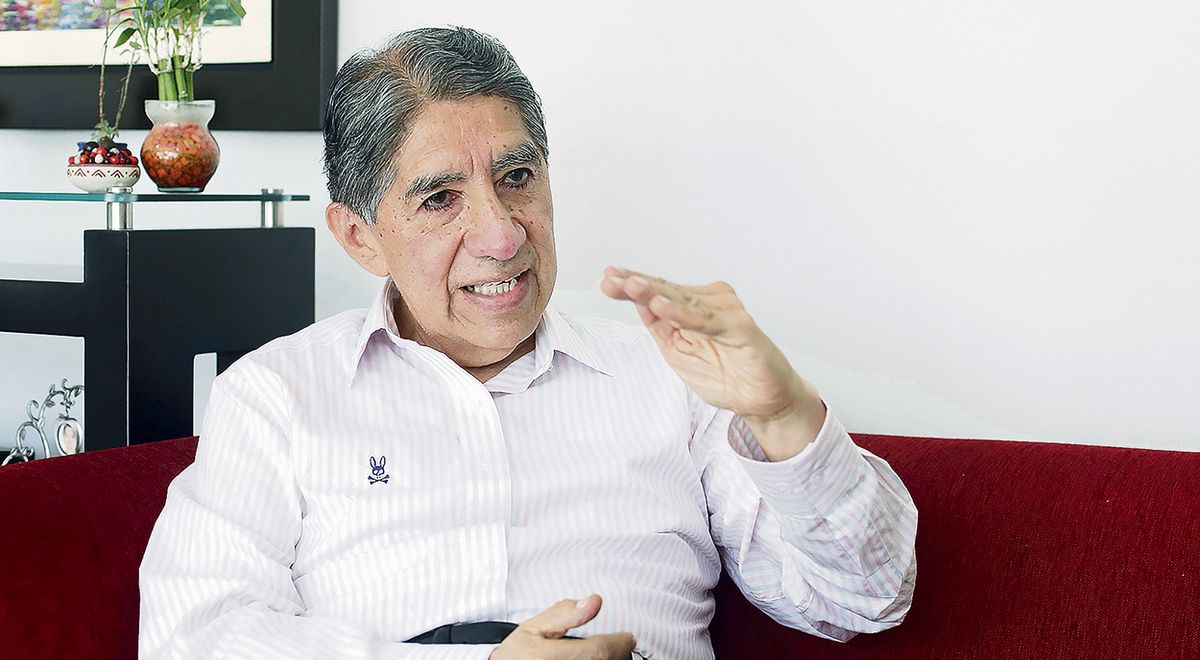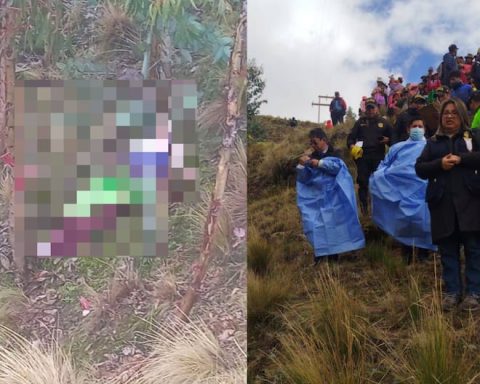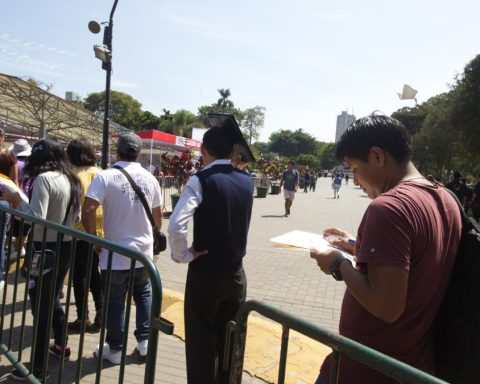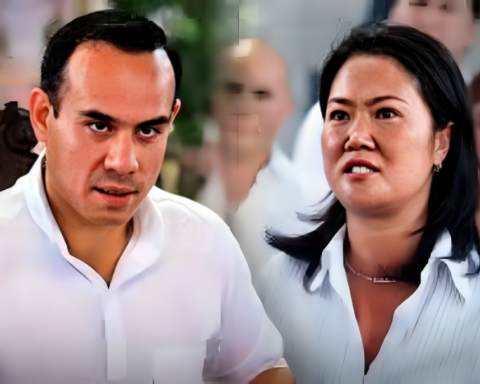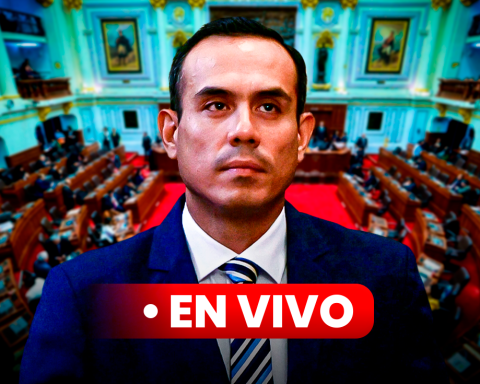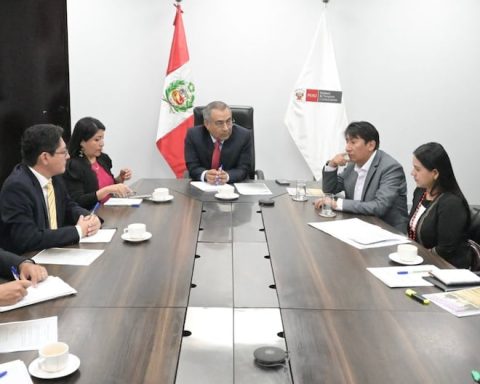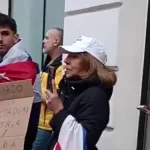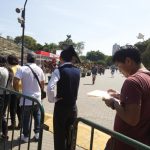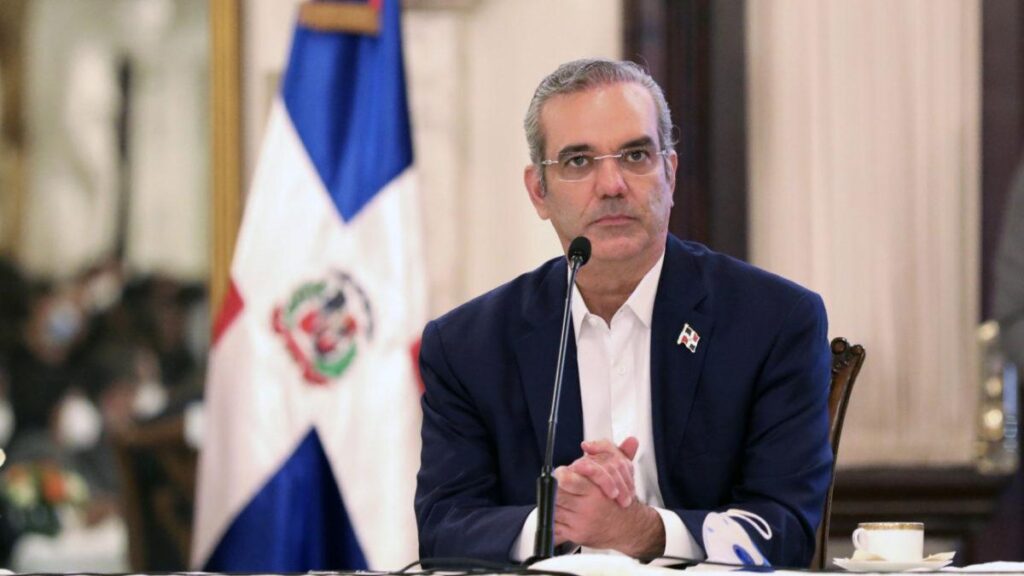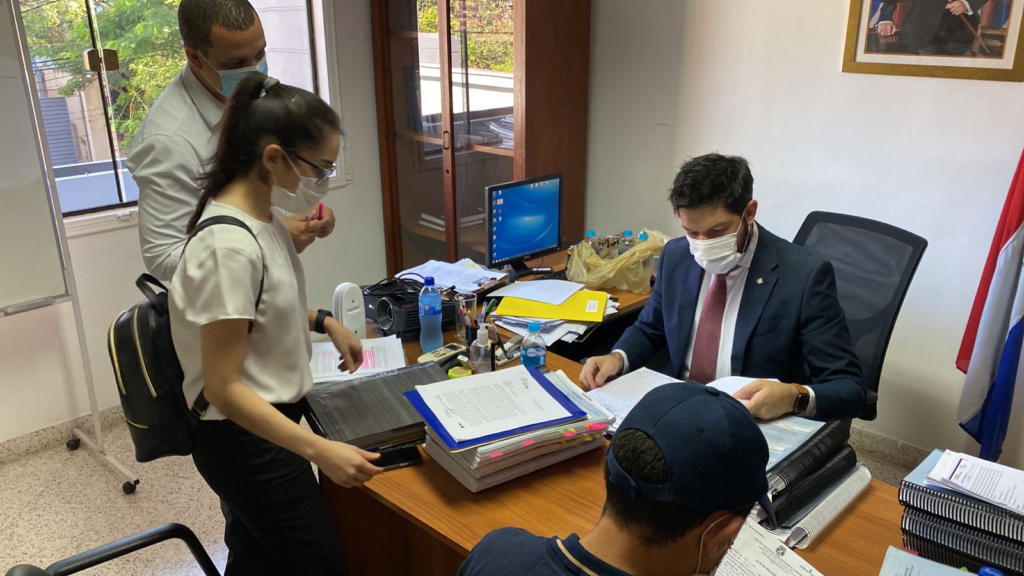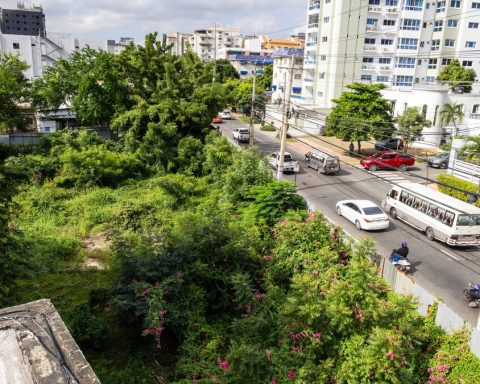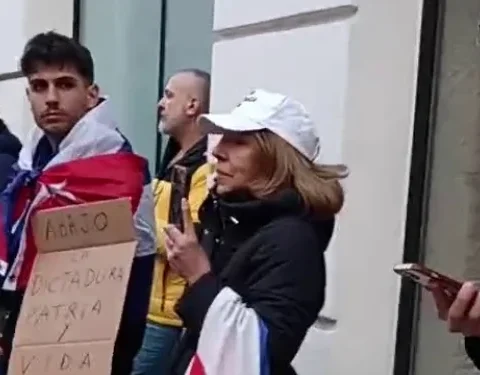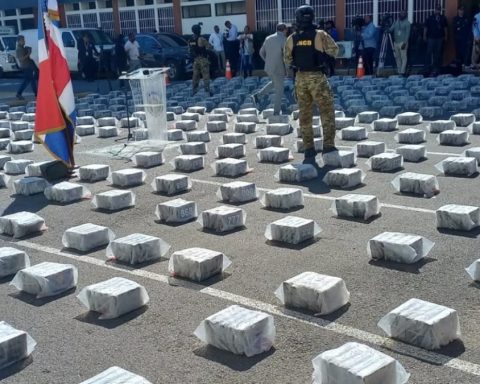Guillén explains that he submitted his resignation from the position of Minister of the Interior because President Castillo did not support his proposal to retire the director of the Police, despite the fact that he warned him that the changes that Gallardo intends would reduce the efficiency of the fight against crime. and corruption.
How do you feel after submitting your resignation?
I feel calm after a long battle. He hoped that the President of the Republic would support his minister, but he preferred to remain silent and put himself in profile. That is a resounding silence, because it says a lot, it has expressed a position of clear and direct support for the Commander General of the Police. I feel calm because, despite all the limitations and enormous challenges, we achieved the goals that we had initially set for ourselves. Assuming this portfolio is a huge challenge, not only because of what they have in front of them, but also because of the internal enemies, who are the most dangerous. We put in place a strategy to deal with crime. We set out to get the support of the Police, raise their morale so that they are the main tool in the fight against crime, and when we succeeded, starting in mid-December, numerous large-scale police operations were unleashed, because the Police felt supported, motivated and encouraged to fulfill its constitutional mission.
Did you also feel closeness from the director of the Police, General Javier Gallardo?
With him we had a good relationship at the beginning on the protocol issue. The discrepancy arises at the time of retirement passes and position assignments.
He presented you with a proposal that for you was not the most correct, is it not?
In the case of retirement passes, I was arranging for the departure of officers who, in my opinion, were valuable. The Police cannot afford to get rid of its best cadres, which have been formed over the years. It’s like a football team. You can’t part with a top-tier footballer on a whim, code war, hoops or other odd situation. I have defended the institutionality .
What did you notice from that list?
For example, the retirement of General Víctor Patiño, number 3, who is a strategist, is clear about the objectives of the Police and defends the institutional framework; General Vicente Tiburcio, of the Dirincri, who according to many well-known specialists is the policeman who knows the most about investigations; General Óscar Arriola, from Dircote; General Víctor Lostanau, responsible for training in Police schools nationwide, who has a vision of the new police officer by 2030. Were we going to retire officers of that high level? That was unacceptable.
And asked to change that list…
I could not account to the president of that list. We wanted to prevent the departure of good police officers. We didn’t say ‘put this one to go away’. Let it be very clear. The list was restructured, and 85% to 90% of what we proposed was respected. That was in December. Then came the issue of job assignments, in January.
A sector of the Police believes that you do not respect the decisions of the police command…
It’s not like that. What I have always defended is the role of the Minister of the Interior, he is not an agent of the police command, but he evaluates and gives his opinion, otherwise it would be a table of parts of the police command and that is unacceptable. I am obliged, by law, to illustrate to the president which are the officers that I believe the police institution cannot waste. It is an ethical duty to give my opinion. I have been told of other ministers who received the proposals in a sealed envelope and only opened them in the presence of the president for him to sign. In other words, they avoided the subject. I can’t do that.
The problem came from the assignment of charges. What specifically did you object to?
That it was not a proposal from the police high command as a whole, that is, taken by Generals Gallardo, Parra and Patiño, but rather it was only from the Commander General. Just as promotion and retirement proposals are made by commissions, why is it not the same with the assignment of positions? All the more so if the high command posts were not going to be up for discussion. The three had to give their opinion, agree and make an institutional proposal. I spoke with the generals (Parra and Patiño) and they told me that they did not intervene in the preparation of that list. In addition, we consider that a minimum of motivation should have been given regarding the changes in positions. That didn’t happen either. So, I mentioned it to the president and, given the persistence of the commander general, I considered that the only possible way out was his retirement.
Did you explain that to the president on January 14?
That was the last day we talked about the subject, we began to talk about it on January 10, and we talked often, but as General Gallardo persisted in his global relationship of assigning positions, and did not accept that it was a proposal from the police high command and be motivated, there was an impasse. The solution that we propose to the president is his retirement and we proposed Lieutenant General Parra as the new Commander General of the Police, and General Patiño as Deputy Commander or Chief of Staff of the Police. The president agreed to evaluate it quickly, he told me that he was going to call me on the 16th or 17th, but he didn’t. Later I asked for an interview with him, but I was not scheduled.
Clings. Director of the Police, Javier Gallardo. Photo: Antonio Melgarejo/The Republic
Did you talk to the premier about this issue?
Clear. I have a duty to the President of the Council of Ministers, and I have to give her an account. I made him see the crisis situation. He has always expressed his support for me. I understand that on several occasions you have raised the issue with the president, but there were no measures.
Have you talked to her after submitting your resignation?
Yes. I have maintained communication by chat because it is not possible in person. After the presentation of my letter of resignation, the premier has told me that she is very concerned and has alerted the President of the Republic to this serious problem.
And has the president communicated with you?
Not at all. I understand that he has been in the interior of the country fulfilling his duties.
When you were summoned by the president, did he offer you independence in office?
At the time he offers me the position, the president offers me support for my management and independence in the exercise of the position, and that has not been fulfilled. It has not supported my management in the face of this crisis and, faced with this situation, I had no other way than to resign because my presence is a stumbling block for the solution of a problem that is above us, such as the Police, which is essential for the fight against crime. Sharpening the crisis aims to damage citizen security plans and strategies. If the president doesn’t feel comfortable with me, it’s better if he has the freedom to choose the people he really wants to work with.
Do you feel disappointed in the president?
I wish the president, with all my heart, the best. I would have liked to talk with him about political issues, give him some scope. The country cannot be run like a union. I think you have to change your strategy. You can’t constantly stir up confrontations, internal fights, creating conflicts. You can’t wait for things to reach the edge of the precipice to just pretend to take action, because the country is not a testing laboratory. He has to surround himself with people with a political background who advise him with what is best for the country. He has to set certain goals, how he wants the public to remember him, and forget about the internal war that is going on, as if it were a union war.
Does the president not listen to his cabinet?
At times he gives me the impression that he doesn’t even listen to the premiere. A vacuum is produced. The important thing in politics is knowing how to listen to everyone, make decisions and assume them. It has an excellent Minister of Economy, a good Minister of Health, to name a few, and they should deserve more recognition.
It seems that there are shadow advisers to whom the president listens the most…
That is certain. There are people who advise him and he likes that. I cannot swear you in as a minister and the next day say that your permanence is being evaluated and that I receive advice from others. It is the first time in history that a peasant has won an electoral process, and he has the responsibility of running a good government.
Aren’t you surrounded by the right people?
I do not see advisers who advise it well. Whoever told you to give the interview to CNN is not your friend or good adviser. What the president lacks is a good team of advisers, establishing dialogue, confidence in his prime minister, working long hours with his ministers, and political evaluation. You must leave the cabinets in the shadows, that of permanently meeting with political leaders, offering them your place, as if it were an auction. How can you work like this? There is a sector of Congress that has only one objective, which is the vacancy, and strategies must be established against that, and the only way to reverse it is with a better quality of work.
What to expect from the president if he keeps Gallardo as director of the Police, despite the complaints that his changes generated personnel problems in the police stations?
I hope that the president will soon make the decisions that are best for the country. ❖
“We demand more patrolling, but they transfer the police”
What led you to make the decision to resign now, without waiting any longer?
I received news with some frequency that the president was already going to resolve the issue. The last thing we heard was that he was going to do it on Friday, but later I found out about the trip to Ancash at dawn, so I understood that this was not enough. My decision was triggered by the fact that the crisis in the National Police was deepening: the paralysis in the Diviac with the cut in qualified personnel, in the budget; the problem with the Lima Police Region, with the changes and transfers by the hundreds, depleting the police stations. I don’t understand what the purpose is. If we demand more patrolling in the streets to combat insecurity, where are they going to get police if they are being transferred?
Sounds like sabotage…
You must think about what consequences each measure will bring. If you transfer highly qualified officials who know corruption cases, those investigations are going to be paralyzed; to avoid this, you have to think of an immediate replacement. But that has not happened. Officers in charge of investigation folders are removed and, by not appointing a replacement, it generates a paralysis, and the serious thing is that, since the deadlines are peremptory and the investigation deadlines expire, the issues will end up in impunity because they leave to be archived as investigations are not carried out. Who is responsible for that? Given the seriousness of the police crisis, I decided to step aside because my presence was preventing the President of the Republic from making a decision regarding this problem. I had become a stumbling block. I prefer to be consistent with my words, because if I speak of defending and respecting the Police, I have to prove it in action. I prefer to go to one side so that, with another minister, this can be resolved.
Did you explain to the president that the changes that General Gallardo wants to make would affect street patrols, which he offered to fight against citizen security?
It has been explained to him about the need to have the best police officers in the units with the greatest responsibility. He knows. However, in the interviews that the president has recently given, he has said that he is waiting for us to come to an agreement. That cannot be given. I am not holding on to any charge. I am leaving with peace of mind, seeing how to contribute to my country without the need for public office.
